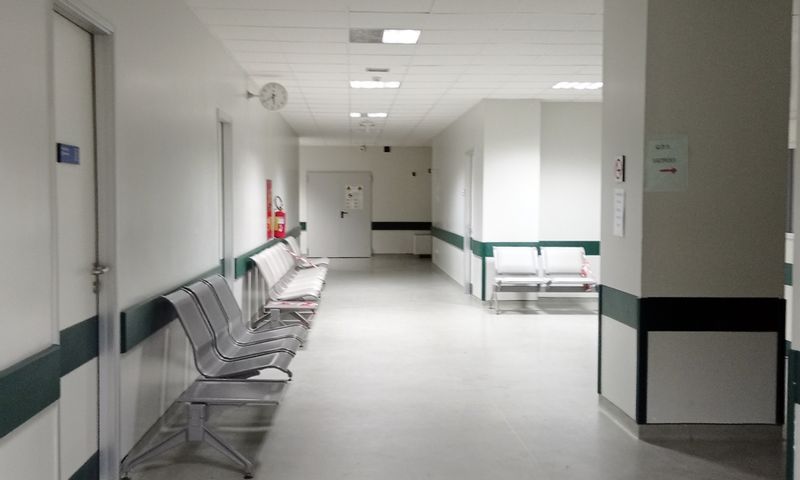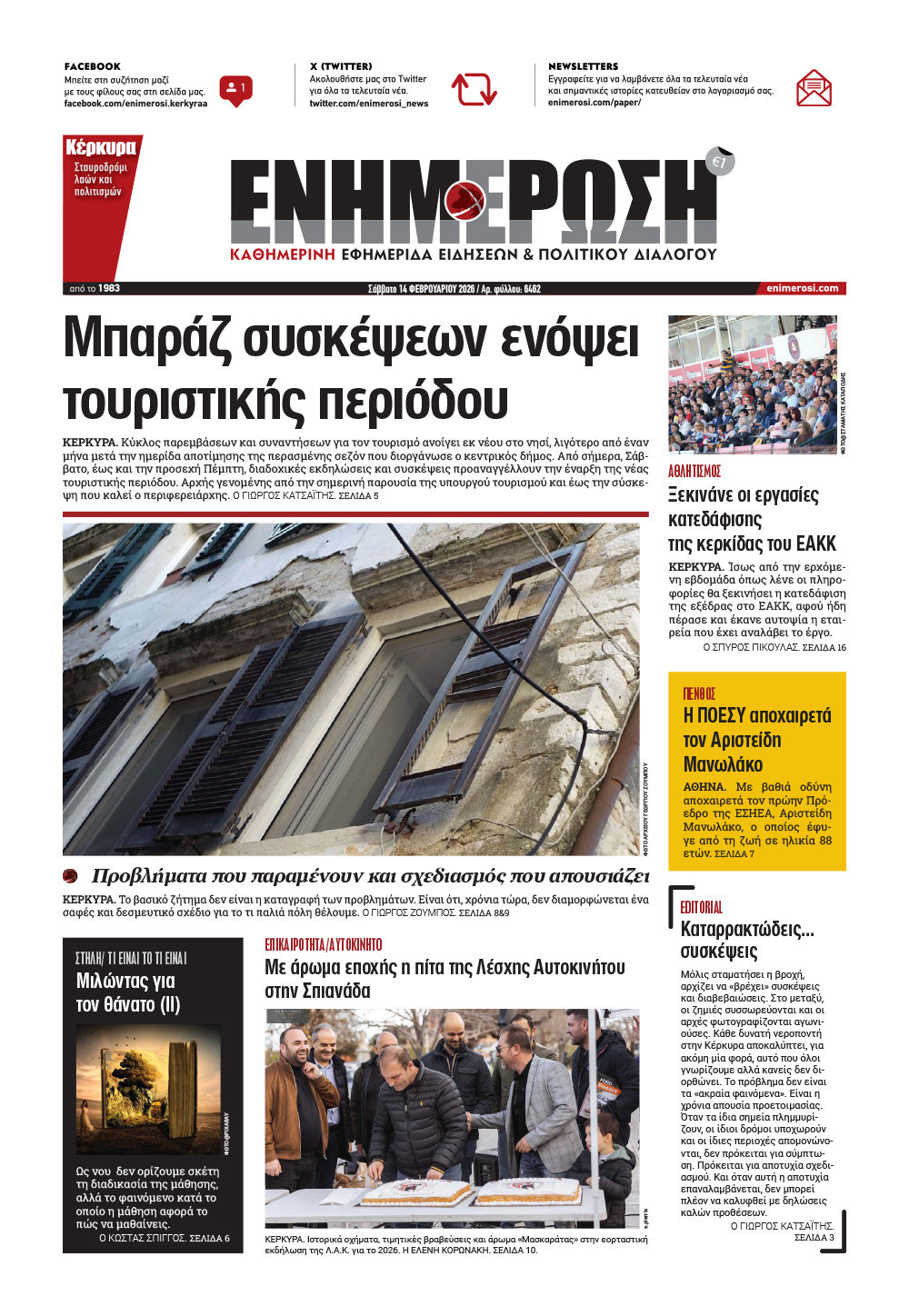Corfu Covid Watch: Significant reduction of serious cases at Corfu Hospital

coronavirus
04 Apr 2022
/ 20:27
CORFU. There has been a relative spike in cases in March, but a significant decrease in hospitalisations and deaths.
The Corfu Covid Watch has published its latest report on the pandemic:
There was a relative spike in the epidemic from mid-March onwards, while the situation was similar in the whole country and much of Europe. Throughout the second half of March, the number of confirmed Covid cases increased. This development does not seem to change so far the fact that the epidemic is gradually receding, something that had started since February. However, this temporary spike gives us the impression that the epidemic recession may not be continuous.
Overall during March the number of confirmed Covid cases decreased compared to the previous month. There was a significant reduction in hospitalisations, serious cases and deaths at the Corfu General Hospital. The epidemic recession is expected to continue over the coming period, while new fluctuations with temporary outbreaks are also possible.
High vaccination rates and the large number of people who have been infected with Covid in recent months are creating significant levels of immunity that are partly limiting uncontrolled transmission and are mainly keeping hospitalisations relatively low. This, combined with the end of winter, is confirming the assessment that we are gradually entering a period of relative epidemic recession. The drugs that prevent vulnerable people from becoming seriously ill is also expected to help reduce hospitalisations.
As the recent spike in cases has shown, the upcoming epidemic recession and the relaxation of measures should not create an illusion that the pandemic is completely under control. The current high levels of immunity will continue to limit the spread of the virus and especially hospitalisations and deaths for the next period.
However, we do not know how long the current high levels of immunity will last. It is very likely that, following a period of recession, there will be new outbreaks of the epidemic. The very high transmissibility of the Omicron variant and its ability to infect people who have been vaccinated or have recovered from Covid, as well as the relaxation of measures, contribute to this. It is also possible that there will be new variants of the virus, which will create new waves of the epidemic, as has happened repeatedly in the past.
A possible new spike in the epidemic may be caused during the Easter period, combined with further relaxation and poor adherence to measures. Despite possible fluctuations, a general decrease is expected as we head into summer and given the high levels of immunity. It is most likely that a major spike in the epidemic will occur again after the summer, when it will have been a long time since the last vaccination or recovery from Covid for a large number of people, while the weather will again favour its spread.
In any case, it is not possible to accurately predict the development of the pandemic, as it has been proved to date. It is necessary to continue to monitor the development of the pandemic, on a local level as well, and it is necessary for the authorities and citizens to be ready to respond effectively to new and perhaps unpredictable spikes and new epidemic waves. An analytical report of the Covid-19 epidemiological situation in Corfu has been posted on the Municipality website.
There was a relative spike in the epidemic from mid-March onwards, while the situation was similar in the whole country and much of Europe. Throughout the second half of March, the number of confirmed Covid cases increased. This development does not seem to change so far the fact that the epidemic is gradually receding, something that had started since February. However, this temporary spike gives us the impression that the epidemic recession may not be continuous.
Overall during March the number of confirmed Covid cases decreased compared to the previous month. There was a significant reduction in hospitalisations, serious cases and deaths at the Corfu General Hospital. The epidemic recession is expected to continue over the coming period, while new fluctuations with temporary outbreaks are also possible.
High vaccination rates and the large number of people who have been infected with Covid in recent months are creating significant levels of immunity that are partly limiting uncontrolled transmission and are mainly keeping hospitalisations relatively low. This, combined with the end of winter, is confirming the assessment that we are gradually entering a period of relative epidemic recession. The drugs that prevent vulnerable people from becoming seriously ill is also expected to help reduce hospitalisations.
As the recent spike in cases has shown, the upcoming epidemic recession and the relaxation of measures should not create an illusion that the pandemic is completely under control. The current high levels of immunity will continue to limit the spread of the virus and especially hospitalisations and deaths for the next period.
However, we do not know how long the current high levels of immunity will last. It is very likely that, following a period of recession, there will be new outbreaks of the epidemic. The very high transmissibility of the Omicron variant and its ability to infect people who have been vaccinated or have recovered from Covid, as well as the relaxation of measures, contribute to this. It is also possible that there will be new variants of the virus, which will create new waves of the epidemic, as has happened repeatedly in the past.
A possible new spike in the epidemic may be caused during the Easter period, combined with further relaxation and poor adherence to measures. Despite possible fluctuations, a general decrease is expected as we head into summer and given the high levels of immunity. It is most likely that a major spike in the epidemic will occur again after the summer, when it will have been a long time since the last vaccination or recovery from Covid for a large number of people, while the weather will again favour its spread.
In any case, it is not possible to accurately predict the development of the pandemic, as it has been proved to date. It is necessary to continue to monitor the development of the pandemic, on a local level as well, and it is necessary for the authorities and citizens to be ready to respond effectively to new and perhaps unpredictable spikes and new epidemic waves. An analytical report of the Covid-19 epidemiological situation in Corfu has been posted on the Municipality website.












